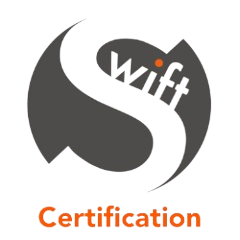When businesses hear “ISO certification,” they often think of paperwork, audits, and upfront costs. But what many overlook is the long-term savings—both in time and money—that ISO certification can deliver. Whether it’s ISO 9001 for quality, ISO 27001 for information security, or ISO 14001 for environmental management, the right system can do more than meet requirements. It can boost efficiency, reduce waste, and cut costs across your organisation.
1. Streamlined Processes = Time Saved
ISO standards are designed to help you build structured, repeatable processes. That means:
- Fewer mistakes
- Less duplication of effort
- Clearer responsibilities
By mapping out how work should flow—and sticking to it—teams spend less time fixing errors or “reinventing the wheel.” For example, a manufacturing firm that certified to ISO 9001 may reduce rework by 25–40%, simply by improving process control and documentation.
Time saved: Up to several hours per employee, per week.
2. Fewer Customer Complaints = Lower Support Costs
Improved quality and consistency naturally lead to fewer customer issues. This reduces:
- Time spent handling complaints
- Refunds or replacements
- Damage to reputation
For service-based businesses, ISO 9001 can reduce client churn and customer service workload. That’s not just time back—it’s revenue preserved.
Potential saving: Thousands annually in reduced service and retention costs.
3. Reduced Waste and Improved Efficiency
ISO 14001 (Environmental Management) helps identify areas where resources are being wasted—energy, materials, time. By tightening controls, businesses often:
- Use less raw material
- Lower energy consumption
- Reduce production time
These savings add up, particularly in industries like manufacturing, logistics, and construction.
Example: A UK logistics firm saved over £20,000 annually in fuel and utility bills after ISO 14001 implementation.
4. Avoiding Fines and Legal Costs
ISO 27001 (Information Security) and ISO 45001 (Health & Safety) help you meet legal and regulatory requirements. By proactively managing risk, you can avoid:
- Data breach fines
- Legal disputes
- Workplace accident claims
This is especially relevant in sectors with strict compliance rules like finance, healthcare, and tech.
Example: The average cost of a UK data breach is £3,000–£10,000+—most of it avoidable with ISO 27001 controls.
5. Faster Tenders and More Wins
ISO certification is often a requirement—or a major advantage—when tendering for new business. It shortens the time you spend filling out compliance paperwork and proves your credentials upfront.
Time saved: Days to weeks per tender.
And because certification builds credibility, it can directly influence whether you win the contract.
Final Thoughts: Is ISO Certification Worth It?
If implemented properly, ISO certification more than pays for itself. The savings in time, operational efficiency, customer satisfaction, and risk reduction are real and measurable. For many, the question isn’t “Can we afford it?”—it’s “Can we afford not to?”




